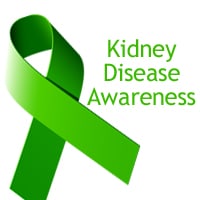How Medical Misdiagnosis Can Lead to Hidden Health Risks

In the realm of modern healthcare, accurate and timely diagnosis plays a pivotal role in ensuring optimal patient outcomes. However, medical misdiagnosis remains a persistent and concerning issue that can lead to unforeseen health risks. Misdiagnoses can arise from a variety of factors, including human error, inadequate information, and the complexity of certain medical conditions. This blog post aims to shed light on the potential hidden health risks associated with medical misdiagnosis, emphasizing the importance of prevention and effective communication between patients and healthcare professionals.
The Impact of Medical Misdiagnosis
A medical misdiagnosis occurs when a healthcare provider inaccurately identifies a patient’s condition, leading to the administration of inappropriate treatments or delay in the appropriate treatment. The consequences of such misdiagnoses can be profound, encompassing both physical and psychological aspects. Working with a trusted Medical Malpractice Law Firm may be necessary in cases where medical misdiagnoses result in preventable medical injuries or death. These cases can be complex and hard to prove, but successful legal action helps to ensure that healthcare providers are held accountable for their actions.
The impact of misdiagnosis on patient health can range from mild to severe, depending on the individual’s condition and the degree of delay present.
Delayed Treatment and Progression of Illness
One of the most critical hidden health risks associated with medical misdiagnosis is the potential for delayed treatment and the subsequent progression of the underlying illness. When a patient receives an incorrect diagnosis, valuable time may be lost pursuing treatments that do not address the condition. This delay can allow the disease to worsen, leading to irreversible damage to organs and bodily systems. In severe cases, such delays can even be life-threatening.
For example, consider a scenario where a patient’s chest pain is initially misdiagnosed as acid reflux, leading to the prescription of antacids instead of the necessary treatment for a heart condition. This delay in addressing the actual heart issue can lead to further damage to the heart muscle and increase the risk of a heart attack.
Unnecessary Treatments and Medications
Conversely, medical misdiagnoses can also result in patients being subjected to unnecessary treatments, surgeries, and medications. These interventions may introduce new health risks, cause adverse side effects, and generate additional financial burdens for patients.
For instance, if a patient is mistakenly diagnosed with a bacterial infection and prescribed antibiotics when the underlying cause is a viral infection, the unnecessary use of antibiotics can lead to antibiotic resistance and compromise the effectiveness of future treatments. Additionally, unnecessary surgical procedures can expose patients to surgical risks, potential complications, and prolonged recovery periods.
Mental and Emotional Toll
Beyond the physical implications, medical misdiagnoses can inflict a significant mental and emotional toll on patients. The uncertainty and confusion surrounding a misdiagnosis can lead to anxiety, depression, and helplessness.
Consider a patient who receives a misdiagnosis of a potentially life-threatening condition, only to later find out that they have a less severe health issue. The emotional rollercoaster of dealing with such conflicting information can leave patients feeling emotionally drained and hesitant to trust future diagnoses or medical advice. Moreover, misdiagnosed patients may feel let down by the healthcare system, impacting their willingness to seek timely medical attention in the future.
Hidden Health Risks of Medical Misdiagnosis
The hidden health risks of misdiagnosis extend beyond the obvious immediate consequences. Several less apparent but equally concerning risks arise from this critical issue.
Diagnostic Bias
Medical misdiagnoses can stem from diagnostic biases, where healthcare providers rely on preconceived notions or stereotypes, leading them to overlook critical clues or symptoms. For instance, certain conditions may be underdiagnosed in specific demographics due to unconscious biases, further complicating health disparities.
To illustrate, let’s consider a scenario where a female patient presents with chest pain, but her symptoms are initially attributed to anxiety due to gender stereotypes and biases. As a result, the underlying heart condition is overlooked, leading to delayed diagnosis and treatment. This diagnostic bias can result in a higher incidence of misdiagnosed heart conditions in women, potentially putting their lives at risk.
Overlooking Coexisting Conditions
Medical conditions, especially chronic illnesses, may manifest with overlapping symptoms, making it challenging to differentiate between them accurately. A misdiagnosis in such cases could lead to neglecting coexisting conditions, undermining comprehensive patient care.
For instance, a patient with diabetes may experience symptoms such as fatigue, frequent urination, and weight loss. These symptoms could be attributed solely to diabetes, leading to the oversight of an underlying thyroid disorder that requires separate treatment. Failure to identify and address the coexisting thyroid condition can lead to suboptimal management of both conditions and potentially worsen the patient’s overall health.
Medication Interactions
When patients receive incorrect diagnoses and subsequent treatments, they may concurrently take medications that could interact adversely. Such interactions may exacerbate side effects or reduce the efficacy of prescribed treatments, hampering recovery.
Consider a situation where a patient receives a misdiagnosis of depression and is prescribed antidepressant medication. Later, the correct diagnosis reveals an underlying heart condition requiring a separate set of medications, including blood thinners. The combination of antidepressants and blood thinners can lead to potentially dangerous interactions, increasing the risk of bleeding complications.
Psychological Distress and Health-Seeking Behavior
Patients who experience medical misdiagnoses may develop a fear of seeking medical help in the future. This behavior can result in delayed diagnosis and treatment for genuine health concerns, potentially worsening health outcomes.
For example, a patient who was misdiagnosed with a non-threatening skin condition instead of skin cancer may develop apprehensions about visiting doctors again. Subsequently, any suspicious skin changes are ignored or delayed, which can lead to a delayed diagnosis of skin cancer and reduce the chances of successful treatment.
Medical misdiagnosis poses significant hidden health risks that can impact patients physically, emotionally, and mentally. By acknowledging the complexity of diagnosis and addressing the root causes of misdiagnoses, we can work towards a healthcare system that prioritizes patient safety and optimal outcomes. Encouraging open communication, fostering collaboration, and embracing technological advancements will pave the way for a future where misdiagnoses are minimized, and patient well-being is safeguarded. Proactive efforts by both healthcare providers and patients will lead to a safer and more reliable healthcare ecosystem, where accurate diagnoses form the bedrock of high-quality medical care.






